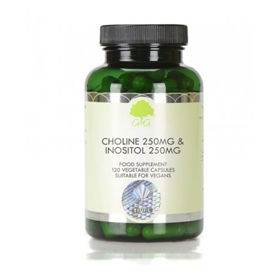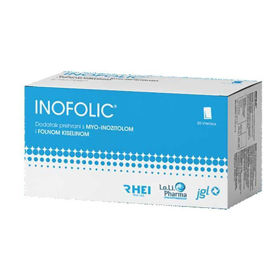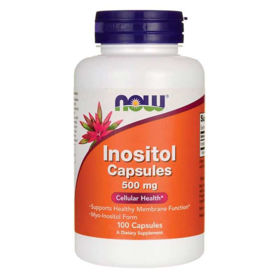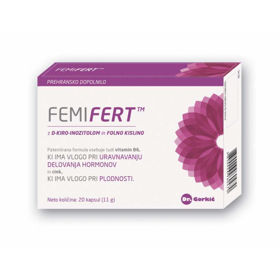Vprašanje stranke:
Pozdravljeni! Zanimam se za nakup inositola v vaši spletni trgovini. PCOS imam diagnosticiran okoli 15-20 let,simptomi pa se po porodih kar hitro slabšajo.. (najbolj moteči so zelo razredčeni lasje).. Bi pri tem inositol lahko pomagal? Sicer pa imam nekaj zadržkov glede varnosti,saj še vedno dojim svojega 10-mesečnega dojenčka in ne vem kakšen vpliv bi to utegnilo imeti nanj..? Že vnaprej iskrena hvala za odgovor.
Stranka
Odgovor:
Inositol je pomembna signalna snov, ki sodeluje v različnih biokemijskih procesih. Med njimi je tudi regulacija krvnega sladkorja in normalizacija hormonskega ravnovesja.
Delno ga sintetiziramo sami, večji del pa ga moramo dobiti s hrano (vlaknine, fitinska kislina). Obilno se izloča pri pretiranem vnosu sladkorja in kave, zato je že pri razvitih težavah in genetski nagnjenosti k PCO prehrana z nizkim vnosom sladkorja še toliko bolj pomembna.
Pri PCO je povišan insulin, povišani pa so tudi spolni hormoni. Med njimi tudi testosteron, ki je odgovoren za nečisto, aknasto kožo, izpadanje las in povečano poraščenost.
Varnost terapije z inozitolom so preizkusili pri nosečnicah z gestacijskim diabetesom. Te so uživale dvakrat dnevno po 2 g inositola (mioinositola) skupaj s 400 mcg folne kisline. Pri tem odmerjanju inositola (v mio-inositol obliki) niso opazili stranskih učinkov, dokazali pa so izboljšano presnovo glukoze (manjše krvne koncentracije) in manj predčasnih porodov.
Inositol dodajajo tudi v mlečne formule v 0,01 % koncentraciji. Ker podatkov o varnem dopolnjevanju med dojenjem nisem zasledila, bi svetovala, da se držite priporočenega odmerka (500 mg/dan). Ko boste zaključili z dojenjem, odmerjanje lahko zvišate na 4 g dnevno. Po nekaj mesecih takega dopolnjevanja pri PCO poročajo o lepšem videzu kože in normalizaciji ciklusov z ovulacijami, glede las pa ni podatkov. Morda se s stabilizacijo hormonov uredi tudi ta težava.
Moja-lekarna.com








 Facebook
Facebook
 Instagram
Instagram
 info@moja-lekarna.com
info@moja-lekarna.com

